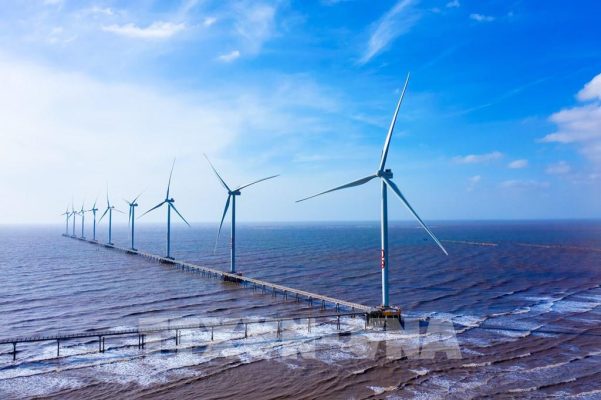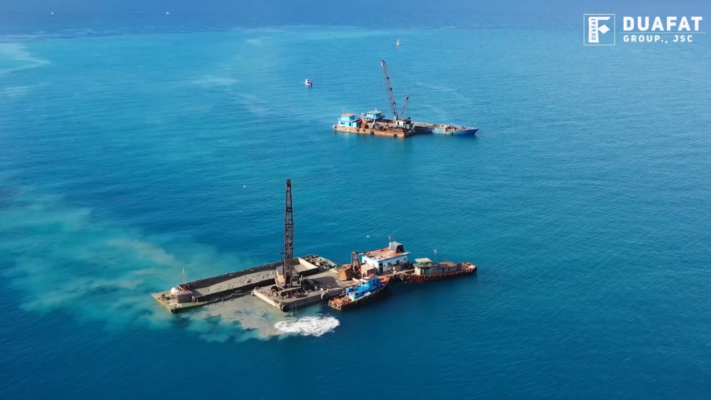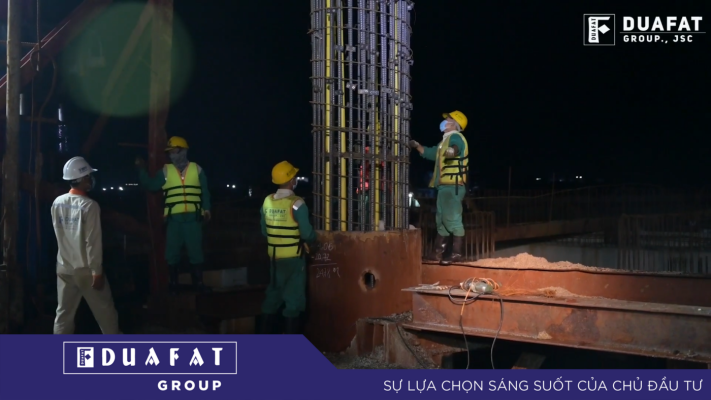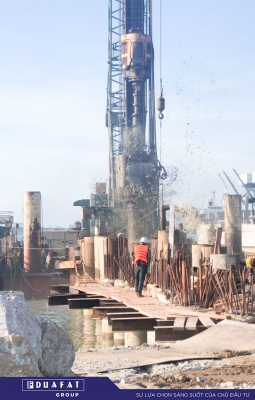The Energy Security Issue
In recent years, the problem of electricity shortage, especially during hot sunny seasons, has become a significant concern and is regularly highlighted by the media and press. The electricity shortage not only negatively impacts the economic development and quality of life for the people but also poses a threat to national energy security. In this context, offshore wind power has been recognized as a potential solution to ensure national energy security.
Offshore wind power, also known as offshore wind energy, is a form of harnessing energy from the wind over the sea. Studies have indicated that Vietnam, as a coastal nation, has significant potential for offshore wind power. According to calculations, areas with a seabed depth of over 20 meters have a total potential technical capacity for offshore wind power of approximately 165,000 MW. The regions with high wind speeds and good economic potential are mainly located in the South Central Coast region (Binh Thuan, Ninh Thuan, Khanh Hoa, Phu Yen, Binh Dinh) with a total potential of around 80,000 MW and wind speeds above 7 – 9m/s.

Compared to onshore wind power, offshore wind power has many significant advantages. Firstly, offshore wind farms are typically located far from the coast, where there is stronger and more stable wind. This helps increase the efficiency of wind turbines and ensures a stable electricity supply. Additionally, placing offshore wind farms does not affect land use and does not disrupt the activities of local communities, while bringing clear economic and environmental benefits.
The potential for offshore wind development in Vietnam
Firstly, wind energy is an endless resource that does not have negative impacts on the environment. Utilizing offshore wind power not only helps reduce greenhouse gas emissions but also reduces dependence on fossil fuels that pollute the environment.
Secondly, the development of offshore wind power creates job opportunities and stimulates economic growth in the renewable energy sector. This can contribute to reducing social instability and improving the quality of life for people.
Thirdly, investing in and developing offshore wind power will create opportunities to enhance partnerships and foster bilateral cooperation in energy and security with international investors. Collaboration in this field not only helps ensure energy security for the country but also contributes to economic development, peace, and stability in the region.
Dua Fat leading the way in wind power projects throughout Vietnam
Understanding the characteristics of Vietnam’s coastal areas and the opportunities for offshore wind development, Dua Fat Corporation has gradually asserted its pioneering position in this field. This is demonstrated by the company’s leadership direction, focusing on development towards becoming an “expert in foundation construction, port development, and offshore wind power.”



Accordingly, Dua Fat has invested in various types of modern equipment and machinery to serve the research and exploitation of offshore wind energy, such as jackups, offshore tug systems, and large-capacity drilling rigs. At the same time, new construction methods have been introduced, such as the P.R.D drilling method: rotating wall descent offshore, to conquer all types of terrains, including hard rocks like granite.
However, the deployment of offshore wind power is not an easy task. It requires technical capability, large capital investment, and support policies from the government, which is a major direction of the Party, the National Assembly, and the Government of Vietnam. From research to practical implementation, coordination among ministries, businesses, and research organizations is needed to study, develop, and deploy advanced technologies to improve efficiency and reduce costs.
In the scenario of power shortage, harnessing the potential of offshore wind power can play an important role in ensuring national energy security. Offshore wind power not only helps meet the electricity supply demand but also promotes sustainable development and minimizes negative environmental impacts. To achieve this, there needs to be commitment and investment from the government, support from international organizations, and collaboration from domestic and foreign businesses. Only through cooperation and collective efforts can we promote the development of offshore wind power and ensure national energy security in the future.


 VN
VN CN
CN KR
KR JP
JP